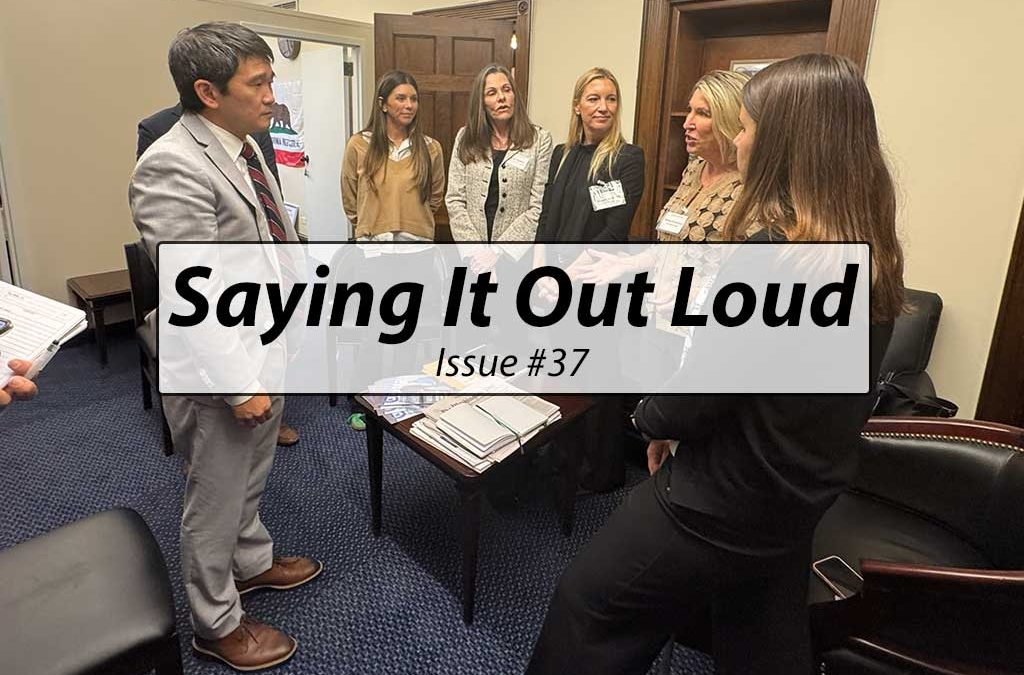Policy Is Moving. Add Your Voice Now.
Where There’s Smoke…New Wealth, Estate Tax Movements Keep Family Business Leaders Watching
You never know when a spark starts a fire… or stops it.
A potential fire can be found in two bills making their way through Congress, both dubbed the “Millionaires/Billionaires Income Tax Act.”
One Senate and one House bill propose taxing annually unrealized gains on tradable assets, like stocks, while non-tradable assets like real estate or businesses would be paid upon the sale or transfer of the asset. These identical wealth tax bills also propose to subject increases in a family business’ asset value to the wealth tax.
On the other hand, the fire stamping out part takes place in Oregon with the introduction of a new “End the Death Tax Act” ballot measure.
The measure asks the state to kill the current “Death Tax.” Some 13 states have a state “Death Tax,” and Oregon’s is one of the highest at 16%, with the worst and lowest exemption rate starting at just $1 million.
Wealth Tax Watch
But first let’s look at the wealth tax bill introduced in Congress in September. It came with little media fanfare.
The Senate’s “Millionaires/Billionaires Tax Bill,” S.2845, was introduced by Sen. Ron Wyden (D-OR) while a House companion bill, H.R. 5427, was introduced by Congressmen Steve Cohen (D-TN) and Don Beyer (D-VA). When introduced, the Senate bill had over 21 co-sponsors. The House bill had 27 co-sponsors.
Similar versions of this bill have been proposed in prior Congresses and some provisions have been part of tax-revenue discussions in Congress for years.
As mentioned, this set of proposals would impose a wealth tax by annually taxing the unrealized gains on tradable assets, like stocks. For hard to value assets like real estate or businesses, the unrealized gains would be taxed once the asset is sold or transferred (subject to interest for the deferral period).
Family Business Impact
The bill purports to eliminate “tax loopholes,” provisions that currently allow successful family businesses and families to navigate the increasingly complex tax code and pay tax when gains and income are realized by the business.
The bill generally would force family business owners and successful individuals to treat their tradeable investments as if they were sold at the end of every year and impose tax on any gains even if no cash were realized.
While the bill could defer the tax payment on non-tradeable assets until they are sold, the family business taxpayer would be subject to a market interest charge for each year the gain is deferred.
The bills’ backers contend the proposal aims to create a fairer tax system where the most successful Americans pay a tax rate and, in a timeframe, comparable to working families.
Our Capitol Hill tax expert, Mark Warren, a shareholder at Brownstein Hyatt Farber Schreck in Washington, D.C., and a tax-policy expert believes that “forcing family-owned businesses and successful individuals to pay tax on phantom gains is not only an unwarranted tax increase, but also a substantial increase in time and fees they must spend on complying with the tax code.”
Warren says it’s wasted capital that family business owners desperately need to meet the current economic challenges of expanding their business. If a wealth tax succeeds, he believes, it will cause damage to some of the most successful family-owned businesses and employers in the country.
According to research, America’s family-owned businesses contribute $7.7 trillion annually to the U.S. gross domestic product, accounting for 83.3 million jobs, or 59 percent of the country’s private workforce.
Family businesses are often most affected by such policies since they’re already taxed at unfair rates compared to corporations.
Most family businesses are pass-through entities, unlike corporations, and have assets that would be directly taxed each year whether they realize a gain or not under this bill, driving many out of business just to pay this new tax.
Oregon’s Death Tax Knell
Oregon’s new “End the Death Tax Act” ballot measure is part of a long series of efforts to kill or substantially lower state and federal Estate Taxes.
The citizen initiative petition, introduced by state Rep. Kevin Mannix (R-Salem), the act would supersede any Oregon law which imposes any Death Tax. If passed, it takes effect January 1, 2027. Similar bills have failed to get traction in the state legislature, hence the move to get it to voters via a citizens’ petition on the ballot.
As Rep. Mannix says about the state’s high and outdated Estate Tax: “It’s Time to Let It Go.”
The estate tax is a tax on the total value of a person’s assets at death over $1 million, the lowest exemption threshold in the nation.
Many people assume this only affects the rich.
But consider this: an Oregonian who owns a $700,000 home, a $300,000 retirement account, and a small business worth $500,000 could leave behind a $1.5 million estate. This family, or family-owned business, would owe Oregon up to $80,000 in taxes, just for trying to pass down what they built over a lifetime.
It’s a policy that is not just outdated—it’s unfair and out of step with the rest of the country.
The initiative needs to receive 117,173 signatures from Oregon voters to make it onto the ballot, making up the required of the total votes cast for governor in the most recent election.
The issue is more than just the immediate Death Tax revenue, it’s also future income from retirees, investment dollars from entrepreneurs, charitable giving tied to estates, and the wealth that is reinvested elsewhere.
This isn’t just a family or family business issue, either. It’s an economic issue. And it’s an ongoing story for many. And it’s just bad policy that Rep. Mannix believes has “to be reformed.”
Overtime, Estate Taxes, in its many forms, creates slow erosion of economic growth and shows no great tax revenue generation, and it has no long-term benefit.
It is time to let it go.
We hope you've enjoyed this article. While you're here, we have a small favor to ask...
As we prepare for what promises to be a pivotal year for America, we're asking you to consider becoming a member.
The need for fact-based reporting of issues important to family owned businesses and protecting a lifetime of savings has never been greater. Now more than ever, successful families and family owned businesses are under fire. That's why Family Enterprise USA is passionately working to increase the awareness of issues important to family owned businesses built on hard work, while continuing to strengthen our presence on Capitol Hill. The issues we fight for or against with Congress in Washington DC include high income tax rates, possible elimination of valuation discounts, increase in capital gains tax, enactment of a wealth tax, and the continued burden of the gift tax, estate tax and generation skipping tax.
Family Enterprise USA promotes generationally owned family business creation, growth, viability, and sustainability by advocating for family businesses and their lifetime of savings with Congress in Washington DC. Since 2007, Family Enterprise USA has represented and celebrated all sizes, professions and industries of family-owned enterprises and multi-generational employers. It is a bi-partisan 501.c3 organization. Family foundations can donate.
#incometax #CapitalGainsTax #R&DExpensing #DontPunishSuccess #GrantorTrusts #StepUpinBasis #likeKindExchanges #AcceleratedDepreciation #EstateTax #Deathtax #wealthtax #taxLegislation #CongressionalCaucus #incometaxrates #repealestatetax #AdvocatingForFamilyBusinesses #FamilyOwnedBusiness #WomenOwnedBusiness @FamilyEnterpriseUSA #FamilyEnterpriseUSA #FEUSA


